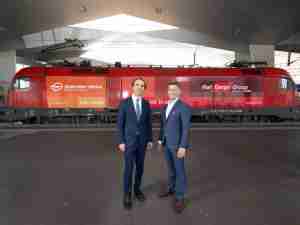Growth of online retailers puts warehouse rates through the roof
posted by AJOT | Apr 06 2017 at 07:58 AM | Logistics
Birmingham, UK - The growth of online retailer Amazon has had a huge effect on the balance between supply and demand in available UK warehouse space, delegates at this week’s Multimodal event in Birmingham have heard.
According to Mark Thornton, Marketing Director of Omnichannel and e-commerce technology provider Maginus, Amazon currently own 13 fulfilment centres and 22 delivery stations in the UK, and expects to be complemented by an additional one million square-feet of warehousing later this year.
“In 2016, 25% of the available warehouse space in the entire country was taken up by Amazon, which led to a 71% reduction in total available space in the country, and that has had an obvious effect on the rest of the market,” he said.
“Rents have subsequently increased for everyone and, in some places, have gone up by 20%.”
The increasing demand for new warehouses from Amazon has inevitably led to a steep rise in demand for warehouse workers, with a consequent drain on the availability of labour.
“The labour pool is one of the big issues,” admitted John Eynon, Managing Director of Southampton-headquartered Import Services.
“Although we had an Amazon warehouse open across the road from us that had no effect, it did affect staff morale.”
Amazon does, however, still remain one of Import Services’ largest customers. Last year alone, it shipped goods to 51 Amazon distribution centres in the UK and continental Europe.
Asked what it is like working for Amazon, Eynon responded:
“Amazon can be difficult to talk to, but once you are inside the skin of the system it isn’t such a bad place,”
“To be honest, I don’t find them more or less difficult than any other retailer.
“It is also important to remember that Amazon is not the biggest retailer by any means. It is still only half the size of Walmart. But what it has done is raise the expectation of the consumer, although there are still plenty of opportunities for other retailers.”
There is also an expectation of the 3PLs working for the e-commerce giant to emulate the same high-service standards.
Eynon was dismissive of the possible challenges posed by disruptive technologies such as Uber Rush, which is an on-demand delivery service that connects shared economy couriers with businesses and individuals who need to schedule on-demand pick-ups and deliveries.
“It’s very easy to get a cheap courier – what you need is a good quality point of delivery, and I am not sure I would trust Uber with that,” he said.
Enyon was part of a panel chaired by the Chief Executive Officer of the UK Warehouse Association (UKWA), Peter Ward, at Multimodal on Tuesday.
Up to 10,000 logistics buyers are expected to visit over 375 exhibitors and take part in a choice of 23 seminar and workshop sessions to hear 82 expert speakers over the three-day show at the Birmingham NEC.









